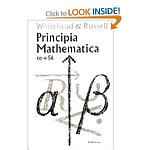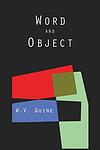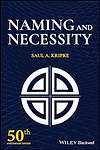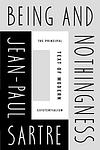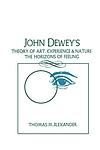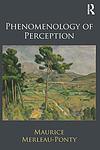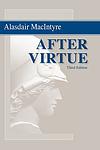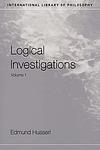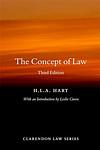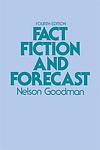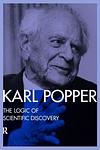The Modern Philosophical Classics
This is one of the 286 lists we use to generate our main The Greatest Books list.
-
Philosophical Investigations by Ludwig Wittgenstein
This book is a seminal work in 20th-century philosophy, presenting a detailed critique of the notion that our language directly corresponds to reality. The author argues that the meaning of words is not inherent, but rather derives from their use within specific forms of life. The book also introduces the concept of language games, suggesting that our understanding of language is akin to learning the rules of a game. The author further explores the limits of language, the nature of understanding, and the relationship between public and private language.
-
Being and Time by Martin Heidegger
Being and Time is a seminal work that explores the concept of "being" through a detailed analysis of human existence. The book delves into existential and phenomenological thought, examining how humans relate to the world and their own existence. The author argues that people are always "being-in-the-world" and that understanding this fundamental state is crucial to comprehending the broader concept of being. The work also introduces the concept of "Dasein," a term used to describe the specific type of being that humans possess.
-
A Theory of Justice by John Rawls
This book presents a seminal work in modern political philosophy, where the author proposes a model of justice that, despite being egalitarian, respects individual rights. The author's "veil of ignorance" thought experiment, which suggests designing society from an original position where no one knows their future place in society, has been particularly influential. The author argues that this would lead to a system where each individual is assured basic liberties and socio-economic inequalities are only allowed if they benefit the least advantaged members of society.
-
Tractatus Logico-Philosophicus by Ludwig Wittgenstein
"Tractatus Logico-Philosophicus" is a seminal work in analytic philosophy that presents a comprehensive picture of reality and our knowledge of it. The book outlines a logical structure for all scientific discourse, arguing that language and its logical structure are the primary tools for understanding and representing the world. It proposes that all philosophical problems arise from misunderstandings of the logic of language, and that all meaningful propositions are pictures of states of affairs in the world. The book concludes with the famous line "Whereof one cannot speak, thereof one must be silent," suggesting that things that cannot be spoken about logically should not be spoken about at all.
-
The Principia Mathematica by Alfred North Whitehead, Bertrand Russell
The Principia Mathematica is a three-volume work on the foundations of mathematics, written with the goal of deriving all mathematical truths from a well-defined set of axioms and inference rules in symbolic logic. The authors aim to show that mathematics is a development of logic and avoid any hidden assumptions. The work covers topics like class theory, relation theory, and quantity theory, and it is known for its rigorous and meticulous approach.
-
Word And Object by Willard Van Orman Quine
This philosophical work delves into the nature of meaning and the relationship between language and reality. It challenges the conventional distinction between analytic and synthetic statements and argues against the possibility of a neutral observation language. The author introduces the concept of the indeterminacy of translation, suggesting that there are multiple valid ways to translate words and sentences between languages without a definitive way to determine which translation is correct. Through rigorous analysis, the book explores how our understanding of the world is shaped by the structure of the language we use, ultimately questioning the foundations of semantics and the philosophy of language itself.
-
Naming And Necessity by Saul Kripke
This philosophical work challenges prevailing theories of naming and necessity within the analytic tradition. It argues against the descriptivist theory of names, which suggests that a name is merely a cluster of descriptions associated with an object. Instead, the author introduces the concept of rigid designators to explain how names refer to the same object in all possible worlds where that object exists, emphasizing that names are directly linked to their referents without the mediation of descriptive content. The book also explores the necessity of identity statements and the contingent nature of scientific identities, significantly influencing contemporary philosophy of language and metaphysics.
-
The Structure of Scientific Revolutions by Thomas Kuhn
This influential book examines the history of science, focusing on the process of scientific revolutions. The author argues that scientific progress is not a linear, continuous accumulation of knowledge, but rather a series of peaceful interludes punctuated by intellectually violent revolutions. During these revolutions, known as paradigm shifts, the old scientific worldview is replaced by a new one. The book also popularized the term 'paradigm shift' and challenged the previously accepted view of science as a steadily progressive discipline.
-
Being and Nothingness by Jean Paul Sartre
This philosophical work delves into the concept of existentialism and phenomenology, offering an in-depth analysis of human consciousness and existence. The author argues that we are all essentially free and responsible for our actions, and that we construct our own identities through our actions and interactions with others. The book also explores the idea of 'nothingness' and 'bad faith', suggesting that we often deny our freedom and hide from the responsibility of our actions, leading to a life of inauthenticity.
-
Process And Reality by Alfred North Whitehead
This philosophical work is a profound exploration of metaphysics, presenting a comprehensive framework that integrates the realities of experience, the nature of objects, and the essence of time. The author introduces the concept of "process" as the cornerstone of reality, arguing that the universe is characterized by a dynamic process of becoming rather than static being. Through the development of a complex system of thought known as "process philosophy," the text challenges traditional metaphysical notions, advocating for a reality that is interconnected, ever-evolving, and fundamentally constituted by events and occurrences. This seminal work is both a critique of classical metaphysics and an ambitious attempt to establish a new philosophical understanding that emphasizes the intrinsic relatedness and creativity of existence.
-
Language, Truth, And Logic by A.J. Ayer
This philosophical work is a cornerstone of logical positivism, presenting a rigorous critique of metaphysics and a fervent advocacy for the verification principle as the only meaningful way of establishing the truth value of statements. The author argues that statements are only meaningful if they can be empirically verified or are tautological in nature, thereby dismissing a vast swath of traditional philosophy as nonsensical. Through this lens, the book explores the implications of this viewpoint for ethics, theology, and the arts, ultimately asserting that many of the questions these fields grapple with are not just unsolvable, but fundamentally flawed in their premises.
-
Experience And Nature by John Dewey
This philosophical work delves into the intricate relationship between human experience and the natural world, arguing that nature and experience are not separate entities but deeply interconnected. The author challenges traditional dualisms and emphasizes the continuity of experience, proposing that understanding this continuity is crucial for comprehending the human condition and the environment in which we live. Through a detailed examination of logic, aesthetics, and ethics, the text advocates for a philosophy grounded in the reality of everyday life and the natural processes that shape it, suggesting that a more profound engagement with the natural world can lead to a richer, more meaningful human experience.
-
Phenomenology Of Perception by Maurice Merleau-Ponty
This philosophical work delves into the nature of perception and its role in understanding human existence. The author challenges traditional notions of objective knowledge, arguing instead for the primacy of perception as the basis for experiencing the world. Through a detailed analysis of the body and its relationship to space and time, the text explores how subjective experiences shape our understanding of reality. The author critiques the Cartesian separation of mind and body, proposing a more integrated approach that emphasizes the interconnectedness of the physical and the mental in constituting human experience. This seminal work offers a profound insight into the complexities of perception, consciousness, and the embodied nature of human existence.
-
Principia Ethica by George Edward Moore
"Principia Ethica" is a philosophical work that argues for the objectivity of good, stating that it is a simple, indefinable and non-natural property that cannot be broken down into any other properties or concepts. The author challenges the prevailing ethical theories of his time, such as utilitarianism and hedonism, and introduces the "naturalistic fallacy," the idea that it is incorrect to define "good" in terms of natural properties. This book is known for its rigorous argumentation and its significant influence on the development of analytic philosophy and ethics.
-
Pragmatism by William James
The book in question is a seminal work in the philosophical tradition of pragmatism, which argues that the truth of ideas is measured not by their correspondence to an objective reality, but by their practical effects and utility. The author challenges the notion of fixed, absolute truths, proposing instead that beliefs should be seen as tools for action and that their validity depends on their success in solving problems and guiding experiences. Through a series of lectures, the text explores the implications of this philosophy for various fields, including religion, metaphysics, and science, ultimately advocating for a more flexible, open-ended approach to thinking and a tolerance for diverse perspectives in the pursuit of knowledge and understanding.
-
After Virtue by Alasdair MacIntyre
This book is a critique of contemporary moral philosophy, arguing that modern ethical theories have failed to provide a coherent basis for moral judgments. The author believes that the Enlightenment project of justifying morality through reason has ultimately failed, leading to a culture of emotivism where moral arguments are reduced to expressions of personal preference. The author suggests a return to Aristotelian virtue ethics, emphasizing the importance of moral character and the role of community in ethical life.
-
Logical Investigations by Edmund Husserl
This seminal work is a foundational text in the field of phenomenology and philosophy, presenting a rigorous critique of psychologism—the view that logic is a part of psychology—and arguing for the independence and objectivity of logical truths. Through a series of detailed investigations, the author explores the nature of meaning, the structure of consciousness, and the relationship between language and logic. By distinguishing between the act of thinking and the content of thought, the work lays the groundwork for a new science of consciousness and establishes the author as a pivotal figure in 20th-century philosophy. The text is notable for its methodical approach and its significant influence on both the analytic and continental traditions in philosophy.
-
Ideas by Edmund Husserl
This philosophical work delves into the complex realm of phenomenology, exploring the intricate relationship between consciousness and the objects of its awareness. The author systematically unpacks the concept of intentionality, the idea that consciousness is always consciousness of something, and introduces the method of phenomenological reduction as a means to study the essential structures of consciousness. Through a rigorous examination of the acts of consciousness, including perception, imagination, and judgment, the text seeks to lay bare the foundational elements of human experience, arguing for a direct investigation into the phenomena as they present themselves to consciousness, free from presuppositions. This exploration aims to establish a solid groundwork for understanding the nature of reality as it is experienced, emphasizing the importance of subjective experience in the constitution of the world.
-
The Second Sex by Simone de Beauvoir
This influential work explores the treatment and perception of women throughout history, arguing that women have been repressed and defined only in relation to men. The author presents a detailed analysis of women's roles in society, family, work, and in the creation of their own identities. She discusses the concept of 'the other' and how this has been used to suppress women, while also examining the biological, psychological, and societal impacts of this oppression. The book is a seminal text in feminist theory, challenging traditional notions of femininity and calling for equality and freedom for women.
-
The Concept Of Law by H. L. A. Hart
This seminal work in legal philosophy offers a comprehensive analysis of the nature of law, articulating a sophisticated theory that emphasizes law as a system of social rules. It challenges earlier positivist and command theories of law, introducing the idea of the "rule of recognition" as a fundamental aspect by which a society accepts certain norms as legally binding. The book also explores the relationship between law and morality, the variety of legal systems, and the notion of legal rights, ultimately providing a framework for understanding the complex structure and functioning of legal institutions in modern societies.
-
The Concept Of Mind by Gilbert Ryle
This philosophical work challenges the Cartesian dualism of mind and body, proposing instead that the mind is not a separate entity but a way of acting. The author introduces the notion of "the ghost in the machine" to critique the traditional understanding of the mental as distinct from the physical. Through a detailed analysis, the text argues that mental vocabulary should be understood in terms of dispositions to behave in certain ways, rather than referring to an inner, private realm. This influential book reshapes the way we think about the mind, emphasizing that mental processes are not located in an inner space but are observable in the patterns of behavior and the competencies individuals exhibit.
-
Fact, Fiction, And Forecast by Nelson Goodman
This philosophical work explores the problem of induction, the process by which we make predictions about future events based on past experiences. The author introduces the concept of "grue," a term used to challenge traditional notions of scientific hypothesis and to question the validity of our inductive inferences. Through a series of thought experiments and logical analyses, the book examines how we can distinguish between what is genuinely lawlike in nature and mere coincidental regularity. It delves into the foundations of logic, the structure of language, and the nature of scientific reasoning, offering a critical perspective on how we understand and forecast the world around us.
-
Truth And Method by Hans-Georg Gadamer
This philosophical work delves into the nature of human understanding, arguing against the view that knowledge is solely derived from scientific method. Instead, it posits that truth and meaning emerge from historical and cultural contexts, emphasizing the importance of dialogue, language, and tradition in shaping our comprehension of the world. The text critiques the objectivity claimed by Enlightenment thinkers, proposing a hermeneutic approach that acknowledges the subjective nature of interpretation and the interplay between the interpreter and the subject matter. Through this lens, the author explores the dynamics of understanding across various disciplines, including art, history, and the human sciences, ultimately advocating for a fusion of horizons where past and present meanings merge.
-
Reasons And Persons by Derek Parfit
This philosophical work challenges traditional notions of self-interest, rationality, and ethics, arguing that our conventional understanding of these concepts is deeply flawed. The author proposes that the boundaries of personal identity are less clear-cut than we might think, leading to profound implications for moral responsibility and the ethics of future generations. Through rigorous analysis and thought experiments, including the famous "repugnant conclusion," the book pushes readers to reconsider the basis of morality and the ways in which we consider the interests of ourselves and others, ultimately suggesting that reasons and persons are intricately connected in the fabric of ethical reasoning.
-
The Problems of Philosophy by Bertrand Russell
This book is an introduction to the central issues of philosophy, discussing topics such as reality, existence, knowledge, freedom, and ethics. It seeks to promote critical thinking and skepticism, encouraging readers to question their own beliefs and the world around them. The author uses clear and accessible language to explain complex philosophical concepts, making it an ideal starting point for those new to philosophy.
-
From A Logical Point Of View by Willard Van Orman Quine
This book is a collection of nine essays that delve into the philosophy of logic and the methodology of science. The author critically examines the relationship between language and reality, challenging the distinction between analytic and synthetic statements and advocating for a holistic approach to the empirical content of scientific theories. Through rigorous analysis and argumentation, the work explores foundational questions in epistemology and the philosophy of language, offering insights into the nature of concepts, the structure of scientific theories, and the limitations of our knowledge. The essays collectively argue for a naturalized epistemology, emphasizing the importance of empirical inquiry in understanding the world.
-
The Logic of Scientific Discovery by Karl Popper
This book is a significant work in the philosophy of science, proposing a methodology for scientific discovery that challenges traditional inductive reasoning. The author argues that scientific theories can never be proven definitively, but can only be corroborated or falsified through empirical testing. He introduces the concept of falsifiability as the key criterion for distinguishing scientific theories from non-scientific ones. The book also delves into the problems of induction, demarcation, and the relationship between theory and observation in scientific practice.
The Philosophical Forum, 27 Books
We asked respondents to name the five most important books in philosophy in the twentieth century, and also the five most important articles. Giving five choices permits discretion, but five is a small enough number to force voters to choose their selections carefully. Since we were interested in judgments of quality, we instructed respondents to make their choices on the basic of intrinsic merit, not on the basis of causal influence. (By the causal influence standard, Mein Kampf might be the most important book of the twentieth century.)
Using the Philosophers’ Email Directory, we mailed our questionnaire to 5,000 teachers of philosophy. About 1,000 emails bounced back for mis-typed or obsolete addresses, 4,000 reached their targets. We received 414 survey replies, a healthy response rate of better than 10%. Since there are about 10,000 teachers of philosophy in North America, we had replies from 4% of the entire profession.
Added about 1 month ago.
This list has a weight of 64%. To learn more about what this means please visit the Rankings page.
Here is a list of what is decreasing the importance of this list:
- List: only covers 1 specific genre
- List: only covers 100 years
If you think this is incorrect please e-mail us at [email protected].




